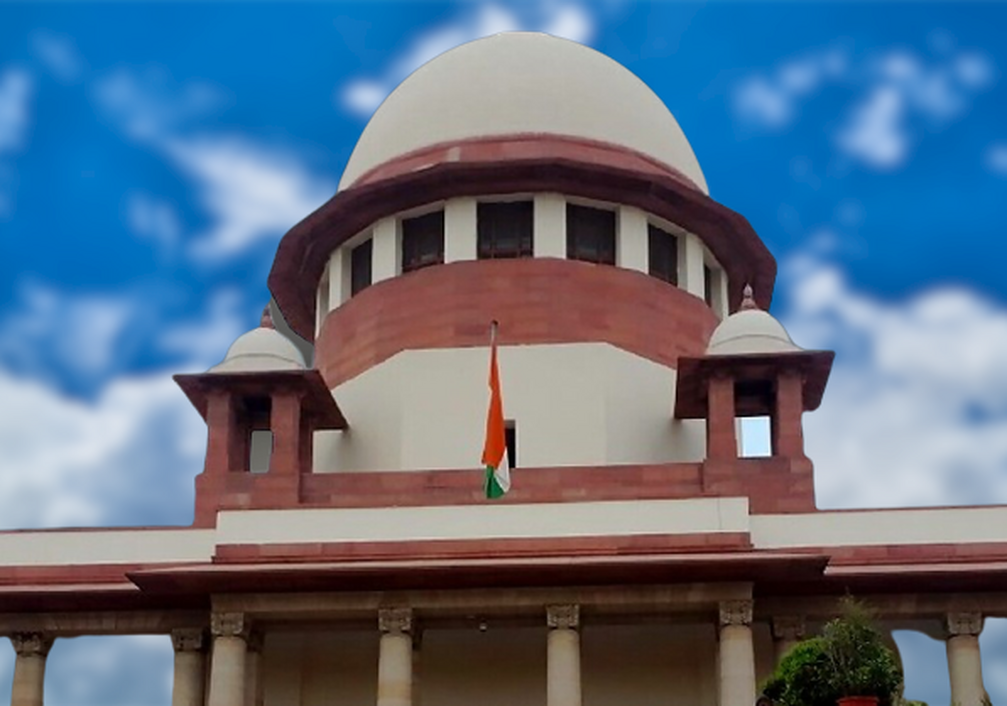Right of widow/daughter to inherit self-acquired property or share received in partition of coparcenary property of Hindu male dying intestate, is well recognized: SC

Read Judgment: Arunachala Gounder (dead) By Lrs. V. Ponnusamy & Ors.
Pankaj Bajpai
New Delhi, January 24, 2022: The Supreme Court has opined that if a property of a male Hindu dying intestate is a self- acquired property or obtained in partition of a coparcenery or a family property, the same would devolve by inheritance and not by survivorship, and a daughter of such a male Hindu would be entitled to inherit such property in preference to other collaterals.
A Division Bench of Justice S. Abdul Nazeer and Justice Krishna Murari therefore observed that since the property in question was admittedly the self-acquired property of Marappa Gounder (deceased father of deceased Appellant daughter) despite the family being in state of jointness upon his death intestate, his sole surviving daughter Kupayee Ammal, will inherit the same by inheritance and the property shall not devolve by survivorship.
Going by the background of the case, suit for partition was filed by Thangammal, daughter of Ramasamy Gounder, claiming 1/5th share in the suit property on the allegations that the plaintiff and fifth & sixth defendants namely, Elayammal and Nallammal and one Ramayeeammal are sisters of Gurunatha Gounder, all the five of them being the children of Ramasamy Gounder. The said Ramasamy Gounder had an elder brother by the name of Marappa Gounder, who predeceased his brother Marappa Gounder after his death leaving behind the sole daughter by the name of Kuppayee Ammal who also died issueless in 1967. After death of Marappa Gounder, his property was inherited by Kuppayee Ammal and upon her death in 1967, all the five children of Ramasamy Gounder, namely, Gurunatha Gounder, Thangammal (Original Plaintiff now represented by legal heir), Ramayeeammal, Elayammal and Nallammal were heirs in equal of Kuppayee and entitled to 1/5th share each.
Similarly, Gurunatha Gounder, died leaving behind respondents as heirs and legal representatives. The plaintiff-appellant, Thangammal, died leaving behind, Arunachala Gounder (Appellant), since having died was being represented by her legal representatives.
The Respondents pleaded that as per the provisions of Hindu Law prevailing prior to 1956, Gurunatha Gounder was the sole heir of Marappa Gounder and accordingly, he inherited the suit properties and was in possession and enjoyment of these properties and after his death the respondents were continuing as lawful owners. The suit property was independently purchased by Marappa Gounder in the year 1938 through the process of a Court auction and thus, it was his independent property. However, there was an issue between the parties in respect of the date of death of Marappa Gounder.
The Trial Court concluded that Marappa Gounder died on April 15, 1949 and thus, the suit property would devolve upon the sole son of deceased Ramasamy Gounder, the deceased brother of Marappa Gounder by survivorship and the appellant had no right to file the suit for partition and, accordingly, dismissed the suit. This finding was confirmed by the High Court.
After considering the submissions, the Top Court found that the date of death of Marappa Gounder being April 15, 1949, it is a finding of fact affirmed by the two fact-finding Courts based on appreciation of material evidence existing on the record of the case and is not liable to be interfered with.
Right of a widow or daughter to inherit the self-acquired property or share received in partition of a coparcenary property of a Hindu male dying intestate is well recognized not only under the old customary Hindu Law but also by various judicial pronouncements, added the Court.
Referring to section 15 of the Act, the Bench stated that Section 15(1)(d) provides that failing all heirs of the female specified in Entries (a)-(c), but not until then, all her property howsoever acquired will devolve upon the heirs of the father. The devolution upon the heirs of the father shall be in the same order and according to the same rules as would have applied if the property had belonged to the father and he had died intestate in respect thereof immediately after her death.
Speaking for the Bench, Justice Krishna Murari noted that in the present case since the succession of the suit properties opened in 1967 upon death of Kupayee Ammal, the Hindu Succession Act, 1956, shall apply and thereby Ramasamy Gounder’s daughters being Class-I heirs of their father too shall be heirs and entitled to 1/5th share each in the suit properties.
Accordingly, the Apex Court allowed the appeal and the suit stood decreed.
Sign up for our weekly newsletter to stay up to date on our product, events featured blog, special offer and all of the exciting things that take place here at Legitquest.




Add a Comment